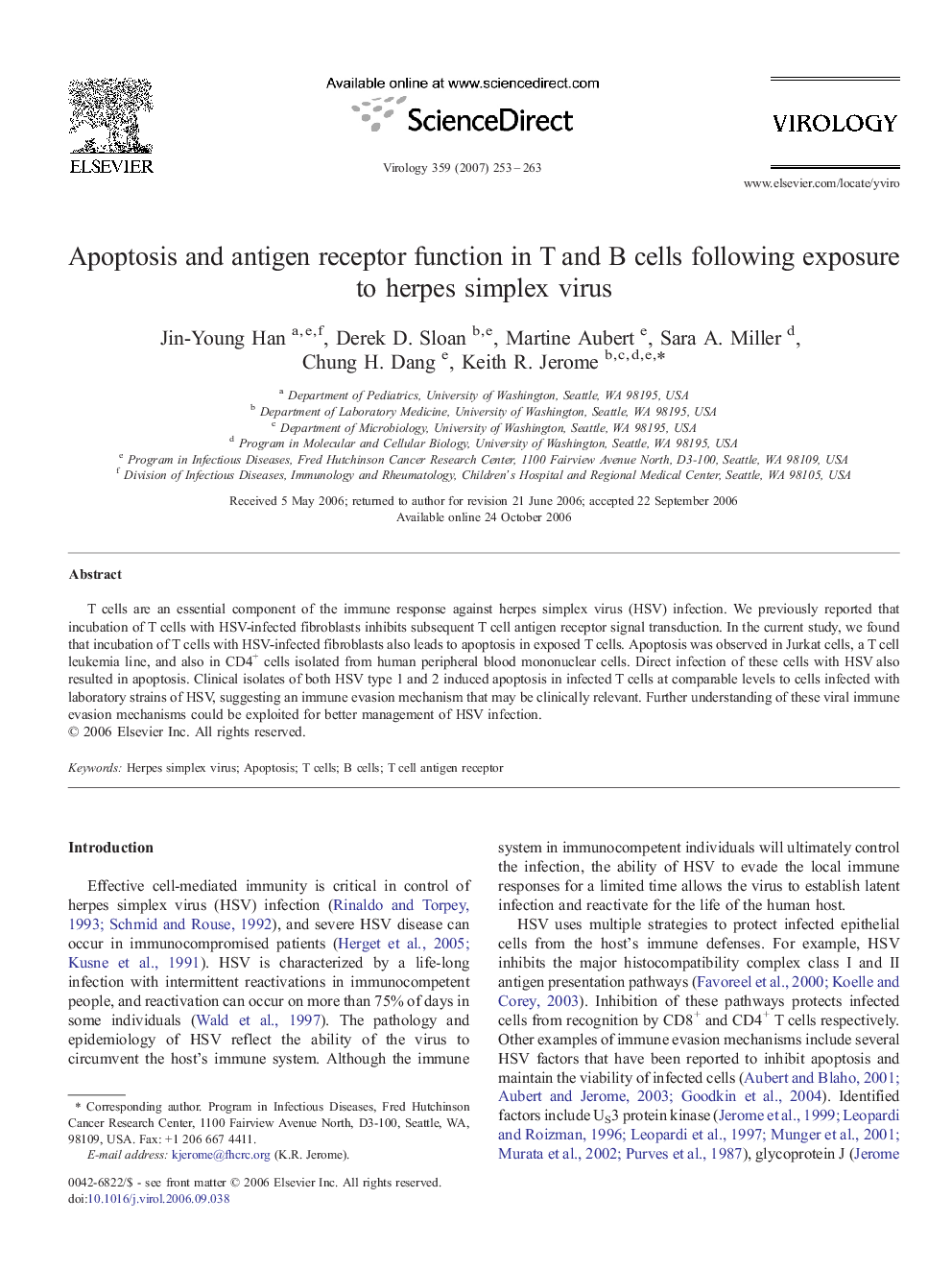| Article ID | Journal | Published Year | Pages | File Type |
|---|---|---|---|---|
| 3426928 | Virology | 2007 | 11 Pages |
T cells are an essential component of the immune response against herpes simplex virus (HSV) infection. We previously reported that incubation of T cells with HSV-infected fibroblasts inhibits subsequent T cell antigen receptor signal transduction. In the current study, we found that incubation of T cells with HSV-infected fibroblasts also leads to apoptosis in exposed T cells. Apoptosis was observed in Jurkat cells, a T cell leukemia line, and also in CD4+ cells isolated from human peripheral blood mononuclear cells. Direct infection of these cells with HSV also resulted in apoptosis. Clinical isolates of both HSV type 1 and 2 induced apoptosis in infected T cells at comparable levels to cells infected with laboratory strains of HSV, suggesting an immune evasion mechanism that may be clinically relevant. Further understanding of these viral immune evasion mechanisms could be exploited for better management of HSV infection.
